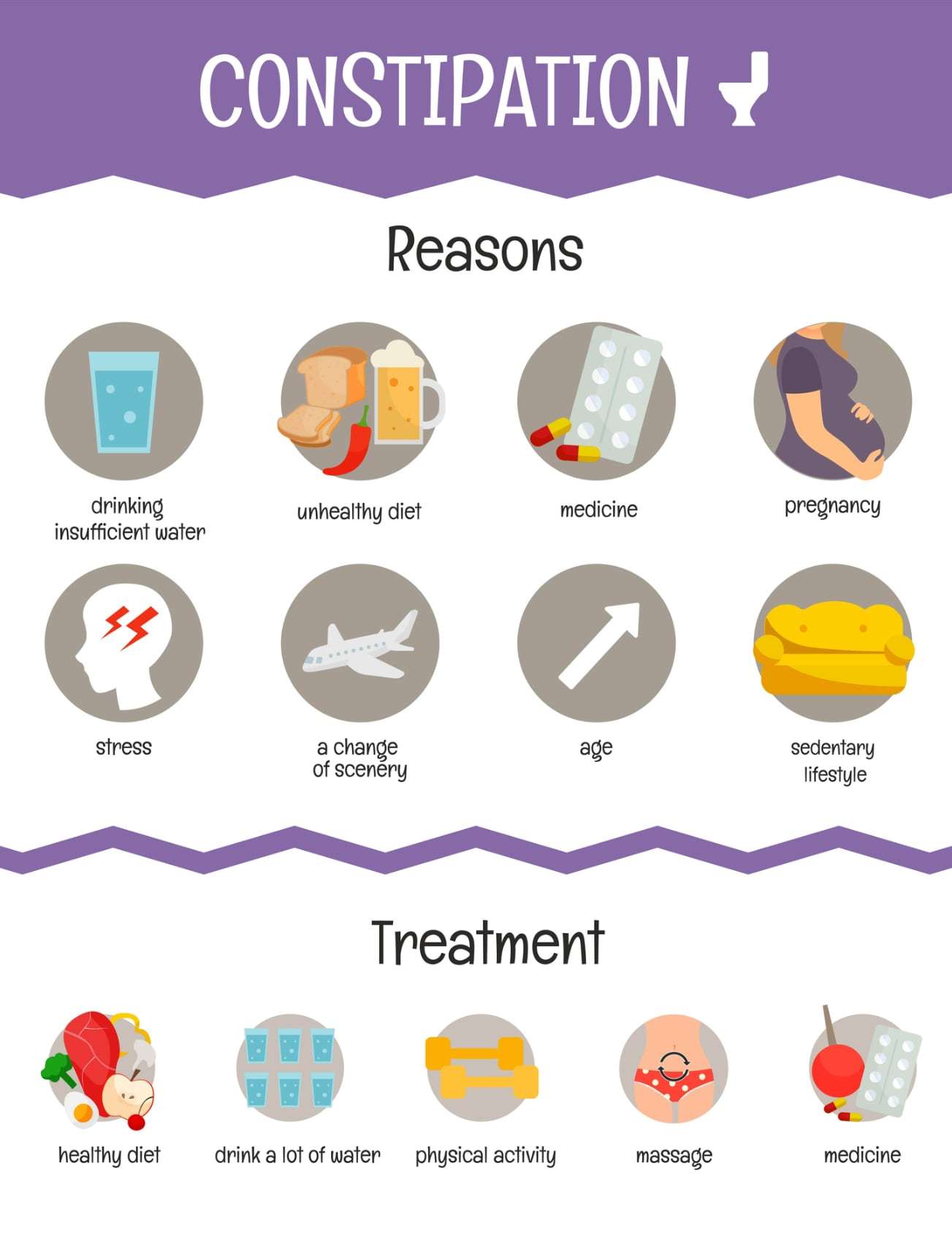Constipation and Bowel Obstruction
Constipation is the slow movement of feces through the intestine which results in infrequent bowel movements and hard, dry stools. The longer it takes for stool to move through the large intestines, the more fluid is absorbed and the harder stool becomes, making it difficult and sometimes impossible to pass.
Constipation signs and symptoms include, but are not limited to:
- Changes in bowel habits;
- Infrequent bowel movements (less than 3 a week or more than 3 days between);
- Difficulty passing stools – straining, painful;
- Hard, dry, lumpy, small stools;
- Belly pain relieved by bowel movements, swollen abdomen;
- Bright red blood in stools; and
- Leaks of wet, diarrhea-like stool between regular bowel movements.

Severe constipation can result in serious complications including rectal bleeding, nausea, vomiting, weight loss, bowel obstruction, fecal impaction, hemorrhoids, anal fissures and rectal prolapse. Two serious constipation issues are fecal impaction and bowel obstruction. Fecal impaction is when hard, dry stool is in the large intestines, often the rectum and cannot be passed. Individuals with fecal impactions often have breathing difficulties due to the collection of the stool in the colon. Fecal impaction can be life threatening. A bowel obstruction is either a partial or complete blockage of the small or large intestines and requires immediate medical attention!
Bowel obstruction signs and symptoms include, but are not limited to:
- Abdominal pain;
- Swelling and fullness;
- Vomiting;
- Diarrhea; and
- Odor to breath.
Your role if symptoms are noted:
You should immediately notify your supervisor and follow your agency’s documentation rules if a person is constipated. A general rule to follow is that if there is no bowel movement in 2 days, report immediately to medical staff. If you suspect an individual has a bowel obstruction, call 911.
Preventing constipation:
- Drink plenty of fluids (64 ounces of water daily);
- Avoid caffeine, high fat foods, and refined sugars;
- Eat a well-balanced fiber-rich diet with fruits (raisins, prunes, apples), vegetables, whole grains;
- Exercise regularly;
- Establish regular bowel habits including providing privacy for individual using the bathroom; and
- Schedule regular toileting especially after meals when the urge to defecate is normally the highest.
People at risk for constipation include, but are not limited to, those who:
- Have diet changes, low fiber, high fat, high refined sugar, excessive caffeine;
- Lack regular exercise and are inactive or immobile;
- Do not have adequate fluid intake and hydration;
- Are stressed;
- Have a disruption of regular routine (travel, change in daily schedule);
- Have medical and psychological conditions;
- Take medications (e.g., pain meds, anxiety/depression meds, diuretics, vitamins, sleep meds);
- Have poor bowel habits (holding back bowel movements);
- Use laxatives and/or enemas excessively; and/or
- Are older.